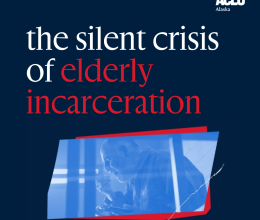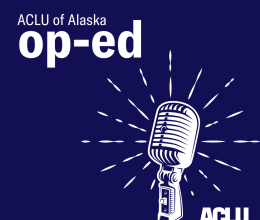The 33rd Alaska state legislature has gaveled into session, welcoming scores of new members into office after a busy election season when almost every seat was on the ballot. They also organized quickly. The Senate is operating under a 17-member bipartisan majority announced way back in November, and a largely Republican majority governs the House, with Cathy Tilton as Speaker.
So, what can you expect from this year’s legislature in terms of civil rights and civil liberties? We’ve already seen members file almost a dozen bills regarding voting and elections, including legislation to create a ballot curing process that would allow voters to fix simple mistakes on rejected ballots. As we saw in last June’s special election, thousands of voters — predominantly those in rural districts with a high percentage of Alaska Native voters — had ballots rejected because of inadvertent and easily fixable mistakes. Legislative action is needed to prevent further disenfranchisement. We plan to work to pass that and other reforms to expand the ability for voters to participate in our democratic process.
We also know that every year brings political attacks on people’s rights, whether it’s an attempt to eliminate Alaska’s constitutional right to abortion, or legislation connected to the coordinated, nationwide attack on LGBTQ+ people. It’s a good sign that some legislators have indicated these types of bills won’t get much oxygen, but we are committed to stop them from moving if needed.
Through the ACLU of Alaska’s Prison Project, we must seek accountability in the wake of last year’s record number of deaths in Department of Corrections custody, and work toward long-term solutions to prevent people from spending their last moments in a state prison. And we need to continue demonstrating that the state is not upholding its responsibility to provide the support people need during incarceration so they can successfully return to their communities when they’re released.
Finally, we know that a few major issues are expected to loom large over session, including education funding, workforce attraction and retention, food security, and access to healthcare. We will be paying attention to how policymakers approach those issues as we seek to be more responsive to the lived needs of Alaska’s communities.



